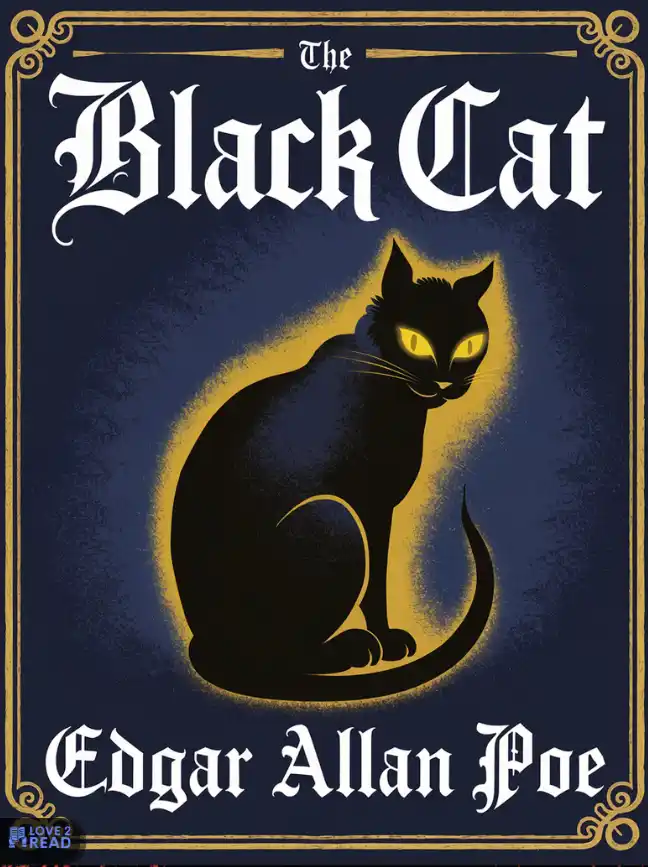Elsinore.—An apartment in the castle.
THE QUEEN AND HORATIO enter .
THE QUEEN.—I will not speak to him.
HORATIO.—She is pressing, indeed; she is delirious: all her ways will surely make you pity her.
THE QUEEN.—What does she want?
HORATIO. She talks much of her father; she says she knows that there are evil tricks played in the world; she sobs and beats her breast; she stamps angrily for a straw; she speaks equivocal things, which have but half meaning; her words are nothing; and yet the shapeless use she makes of them makes those who hear them put them together; they do not lose sight of them, but stitch the words together according to their own thoughts; hence, as her winks of the eyes, and nods of the head, and gestures, still help them, one might believe, indeed, that she has some thought, nothing certain, but of a very unwelcome turn.
QUEEN.—It were well to speak to her; for she may throw dangerous conjectures into minds that harbor an evil will. Let her be brought in. ( Exit Horatio . ) To my sick soul—such is the true nature of sin!—every trifle seems the prologue of some great misfortune; so full of clumsy distrust do our faults fill us! They discover themselves, fearing to be discovered.
(Horatio returns with Ophelia.)
OPHELIA.—Where is the fair Queen of Denmark?
THE QUEEN.—Well! Ophelia?
OPHELIA, singing .
How can I distinguish your true friend from another
? By his hat adorned with shells,
and by his staff, and by his sandals34 .
Note 34: (back) Ophelia describes the costume of a pilgrim, which, in the stories and songs of old, often served as a disguise for lovers.
THE QUEEN.—Alas! gentle lady, what does this song mean?
OPHELIA.—What do you say? Mark it well, I pray you.
(She sings.)
He is dead and gone, madam, he is dead and gone:
at his head is a mound of green grass; at his heels
is a stone.
Ah! ah!
THE QUEEN.—Yes; but, Ophelia….
OPHELIA.—I pray you, mark well.
(She sings.)
His shroud, white as the snow of the mountains…
(The king enters.)
THE QUEEN.—Alas! see this, my lord.
OPHELIA.
…is all sown with sweet flowers, which, all wet
with tears, went to the tomb, wet with the
showers of sincere love.
THE KING.—How do you find yourself, my fair damsel?
OPHELIA.—Good. God help you! They say the owl was a baker’s daughter.35. Lord, we know what we are, but we do not know what we may be. May God be at your table!
Note 35: (back) It is a legend from Gloucestershire that one day Our Lord Jesus Christ entered a baker’s shop as he was baking. He asked for some bread. The baker’s wife immediately put a piece of dough in the oven to bake for him; but she was sharply reprimanded by her daughter, who found the portion too large and reduced it to almost nothing. Immediately the dough swelled and became an enormous loaf; seeing this, the baker’s daughter began to cry: “Heugh! heugh! heugh!” and in order to punish her for her wickedness, Our Lord changed her into an owl, because she had imitated the cry of this bird. This story is told to little children to teach them to be generous towards the poor.
THE KING.—She thinks of her father.
OPHELIA.—I pray you, let us not say a word of this; but if you are asked what it means, say thus:
(She sings.)
Hello! It’s Valentine’s Day!36 ; everyone is up early this morning, and I, young girl, am at your window, to be your Valentine. He got up and put on his clothes, and opened the door of the room: he brought the young girl in, but young girl she did not come out again.
Note 36: (back) The feast of Saint Valentine is on February 14. According to country tradition, it is around this time of year that pairs of birds choose each other; hence doubtless the custom to which Ophelia alludes. In some parts of England, the first young girl a young man met on February 14 was officially his sweetheart; in other places, the names of the young men were put in an urn, and the young women drew lots. This was said to be a good omen of marriage between those thus betrothed by chance; one might, even without Ophelia’s song, believe that this naive custom did not always turn out so well. Even today, in England, young men and women send each other declarations in prose and verse on February 14; but they are not signed, or even written, most of the time; we buy them ready-made to throw them in the post, and the vignettes or the lace of the cute paper which is used for these printed gallantries do not add enough attraction to a banal testimony of memory which we do not even take the trouble to carry like a visiting card.
THE KING.—My lovely Ophelia!
OPHELIA.—Truly, without swearing, I will finish this song:
By Gis37 and by holy Charity! alas! phew! what
a shame! That’s how young people do when they can
do it. Ah! God! how blameworthy they are!
Before you bothered me, she said, you
promised to marry me….And he answers:
So I would have done it, by the star that is there, if you
had not arrived at my bed.
Note 37: (back) Gis, a corrupt and popular abbreviation of Jesus, coming from the letters JHS, which alone served to mark the name of NS on altars, on bindings, etc. Holy Charity is not the theological virtue, but a saint often invoked, as here, by way of pious oath, in ancient English poetry, and who has her place in the martyrology at the date of August 1, as having suffered martyrdom in Rome, under the Emperor Hadrian, with two other virgins who were called Hope and Faith.
THE KING.—How long has she been like this?
OPHELIA.—I hope all will be well. We must have patience…; but I cannot help crying, to think they put him in the cold earth. My brother shall know that; and, with that, I thank you for your kind advice…. Come, my carriage. Good evening, ladies; good evening, my dear ladies; good evening, good evening.
(She leaves.)
KING.—Follow her closely; give her good watch, I pray you. ( Exit Horatio . ) Ah! this is the poison of deep grief, springing all from her father’s death. And now, Gertrude, Gertrude! When sorrows come, they come not one by one like scouts, but by battalions. First her father slain, then your son gone—your son, the most violent author of his own just banishment—the people, a thick, disturbed mire, breathing out pernicious thoughts, and murmuring of good Polonius’s death; for we did not maturely bury him on the sly; then poor Ophelia taken from herself and that noble reason, without which we are but human simulacra or true brutes; Finally, and this is as important as all the rest, her brother, having returned secretly from France, feasts on his cruel surprises, wraps himself in clouds, and has no shortage of buzzing flies that infest his ears with poisonous speeches about his father’s death; and, in these speeches, the demands of a subject too poor will leave them no scruples about accusing us in person, from ear to ear. O my dear Gertrude, all this, like a cannon of grapeshot, hits me in many places and gives me too many deaths at the same time!
(Noise behind the theater.)
THE QUEEN.—Alas! what noise is this?
(A gentleman enters.)
THE KING.—Hello! Where are my Swiss? Let them guard the door…. What is it?
THE GENTLEMAN.—Run, my lord. Ocean, leaping her barriers, devours not the shores with more impetuous haste than young Laertes, at the head of the sedition, overthrows your officers! The rabble calls him their lord; and, as if the world were but beginning today, antiquity is forgotten, custom is disregarded, they by whom all titles are ratified and upheld. They cry: “Let us choose! Laertes shall be king!” And caps, and hands, and tongues applaud, even to the clouds at this cry: “Laertes shall be our king! Laertes king!”
THE QUEEN.—How gladly they go barking on this false trail! Ah! you are at fault, you bad Danish dogs!
(Noise behind the theater.)
THE KING.—The gates are broken.
(Laertes enters armed; he is followed by a crowd of people.)
LAERTES.—Where is this king?… Gentlemen, keep all out.
THE PEOPLE.—No, let us go in.
LAERTES.—I pray you, let me do it.
THE PEOPLE.—Yes, yes!
(They retreat out of the door.)
LAERTES.—I thank you,… keep the door…. O thou infamous king, give me back my father!
THE QUEEN.—Calm yourself, brave Laertes.
LAERTES.—A single drop of my blood, if it be still, proclaims me a bastard, cries to my father, “Cuckold!” and burns, here, with the name of prostitute, the chaste and immaculate brow of my loyal mother.
KING.—What is the cause, Laertes, that makes your rebellion assume these gigantic airs?… Let him go, Gertrude; fear not for our persons; there is a divine magic that surrounds kings with such a hedge, that treason can scarcely look stealthily at what it would, and puts little of its will into action!… Tell me, Laertes, why you are so inflamed…. Let him go, Gertrude… Speak, O man!
LAERTES.—Where is my father?
THE KING.—Dead.
THE QUEEN.—But not through the king’s fault.
THE KING.—Let him question his own self-satisfaction.
LAERTES.—And how is it that he is dead? I will not be trifled with. To hell go loyalty! And oaths to the blackest devil! To the bottom of the abyss conscience and salvation! I defy damnation. I stick to this point: forget this world and the next, and come what may! Only I will have full vengeance for my father.
THE KING.—Who can stop you?
LAERTES.—My will, not the whole universe’s; and as for my resources, I will manage them so well that a little may go a long way.
KING.—Brave Laertes, if you desire to know the certain truth of your dear father’s death, have you written in your plan of revenge that, with a single sweep, you will carry off both his friends and his enemies, the guilty and the innocent?
LAERTES.—No, his enemies only.
THE KING.—Then do you want to know them?
LAERTES.—As for his good friends, thus will I open my arms wide to them; and like the tender pelican that gives its life, I will feed them with my blood.
KING.—Well! now you speak like a good son and a loyal gentleman. That I am not guilty of your father’s death, and that I have the most sensible grief for it, will penetrate into your own reason, as straight as the day penetrates into your eyes.
THE PEOPLE, behind the stage. —Let her in.
LAERTES.—What is this? What is this noise? ( Enter Ophelia, queerly dressed with flowers and straw . ) O heat, parch my brain! O tears seven times salted, consume in my eyes all gift of feeling and acting! By heaven, thy folly shall be so well repaid by its weight that it shall be our pan that turns the beam of the scales! O rose of May, dear daughter, good sister, sweet Ophelia! O heaven, is it possible that a maiden’s reason be as mortal as an old man’s life? Nature is refined in love; and thus refined, sends, in testimony of herself, to the object so beloved, something of her precious essence.
OPHELIA.—( She sings .)
They carried him barefaced into the coffin, tra, la,
la, la! tra, la, la, la! and on his tomb came
to rain many tears…Good evening, my lovebird.
LAERTES.—If you had your reason, and stirred me to revenge, it could not move me so much.
OPHELIA.—You must sing:
Down! Down! Throw him down!
How well the refrain goes there38 ! This is the
traitorous steward who stole his master’s daughter.
Note 38: (return) In the previous scene, between the mad Ophelia and the Queen of Denmark, the first edition of Hamlet gives this forgotten indication: “Ophelia enters with flowing hair, playing the lute and singing.” No doubt it was also traditional that she played here on her lute this refrain which pleases her.
LAERTES.—This nonsense is more than common sense.
OPHELIA, to Laertes. —Here is some rosemary39 ; it is for remembrance. I beg you, love, remember. And here are thoughts; it is to make you think.
LAERTES.—There is a lesson in his madness: thoughts and memory put together.
OPHELIA, to the king. —Here is some fennel for you.40 , and columbines.—( To the queen .) Here is some rue for you41 , and there is still some for me; we can, on Sundays, call it herb of grace; you can wear your rue bouquet with a difference. Here is also a daisy42 ; I would give you violets, but they all withered when my father died43 ….. They say he made a good end;
Because this dear good Robin, he makes me all happy….
Note 39: (back) The emblematic language of flowers was very fashionable in Shakespeare’s time and was closely linked to the superstitious faith that was still held in the medicinal or magical power of plants. Ophelia gives each person a flower that alludes to an event in the drama or to the known character of the character, and she makes her choice with a presence of mind, with a precision of application, that would seem to belie her madness if some of these allusions, by their very precision and their imprudent truth, did not show that Ophelia is no longer mistress of her words and actions. Rosemary, always green, was the emblem of fidelity; it was worn at funerals and engagements; in his dialogue in verse between nature and the phoenix (1601), R. Chester says: “Here is some rosemary: the Arabs, physicians of perfect skill, affirm that it comforts the brain and memory.” So Ophelia chose rosemary for her brother so that he would remember her and their dead father.
Note 40: (back) The fennel that Ophelia gives to the king was the flower of flattery and dissembling; the columbine was the flower of ingratitude and neglect. In Florio’s Italian-English dictionary (1598), we read: ” Dare finnochio , to give fennel, to flatter, to dissemble.” Among the sonnets published in 1584 under the title of A Handful of Delights , there is a poem called Bouquets always sweet to lovers, to be sent as tokens of love , and in which the lover says: “Fennel is for flatterers, a bad thing indeed, but I have never had anything but upright intentions, a constant and pure heart.” In Chapman’s comedy, Nothing but Fools (1605), a character says: “What is it? a columbine?”—“No,” replies the interlocutor, “that ungrateful flower does not grow in my garden.”
Note 41: (back) Rue was an emblem of sorrow, because of the resemblance which exists, in English, between the word rue and the word ruth , grief. Shakespeare, in Richard II (Act III, Sc. IV), has remade the same play on words; a gardener says there, speaking of the dethroned queen: “Here she shed a tear; here, in this very spot, I will put a bed of rue; and rue, in the place of sorrow, will soon show itself in memory of a weeping queen.” Rue was also called herb of grace , because it was attributed the power of inspiring contrition and correcting vices, and as such it was used in exorcisms. In an old English ballad entitled The Advice of Doctor Bien-Faire , the recipe for the use of rue is given thus: “If someone has too nimble fingers, which he has not been able to ward off, fingers which want to rummage in people’s pockets or do any other harm of that kind, he must make himself bleed, wear his arm in a sling, and drink an infusion of the herb of grace in a warm mixture of milk and wine.” Ophelia keeps rue for herself, as a symbol of her filial sadness; she wants the queen to wear it as well, as a symbol of her maternal sadness; but each time Sunday returns, the day dedicated to God, Ophelia wants rue to take on its even more mystical meaning, so that the queen will repent and free herself from the criminal love to which she has sold her soul. This is why Ophelia stands out. A difference, in heraldic language, was the sign which distinguished between an elder and a younger son the arms of the family; thus the youngest of the Spencers bore, as a difference, a border of gules around his escutcheon (Holinshed, Reign of King Richard II , p. 443). According to this blazon of flowers from which Ophelia borrows her images, the street, in the hands of the poor innocent fool, will speak only of regrets, and, complicated by its other name, in the hands of the guilty queen, will speak at once of regrets and remorse.
Note 42: (back) One of Shakespeare’s contemporaries, Greene, says, in his A Bite from an Upstart Courtier : “…Near there grew the hidden daisy, to warn all those maidens too quick to be tender not to trust every beautiful promise of all those boys in love.”
Note 43: (return) In the sonnets cited just now, the violet is thus commented on: “The violet is for fidelity, which will always remain in me; and I hope that you, likewise, will not let it escape from your heart.” But here, what must be noted, is it not rather the last, so touching and so sad, trait of Ophelia who believes the violets to be withered by the death of her father? After this rapid jingle of allusions, when this double-entendre babble is about to tire, when Shakespeare has finished painting the madwoman for us and wants to give us back the daughter, a word springs forth, or rather, a tear of pure poetry, a single one, and that is enough, for the very sobriety and grace of the most delicate Greeks are not foreign to this impetuous genius of the North. Bion had said, like Shakespeare, in the elegy on the death of Adonis: “And all with him, when he died, all the flowers also faded.”
LAERTES.—Melancholy and despondency, despair, hell itself, all in her turns into charm and grace.
OPHELIA.—( She sings .)
And will he not return? And will he not return? No, no, he is dead! Go to your deathbed! He will never return. His beard was white as snow, his head as fair as flax; he is gone, he is gone, and we groan in vain. God have mercy on his soul!…
And to all Christian souls!… I pray to God… God be with you!
(She leaves.)
LAERTES.—See this, O God!
KING.—Laertes, I must converse with your grief, or you would deny me a right that is mine. Let us only withdraw. Choose whom you will among your wisest friends; they will hear and judge between you and me. If, by action directly or collaterally, they find us compromised, we deliver you our kingdom, our crown, our life, and all that we say is ours, to satisfy you. But, if not, resign yourself to lend us your patience, and we will work together with your soul to give it the contentments it deserves.
LAERTES.—So be it. The manner of his death, his obscure burial, no trophy, no sword, no crest on his coffin, no noble rite, no official apparatus, all this cries to me, like a voice from heaven to earth, that I must demand an account of it.
THE KING.—So shall you do; and where there is crime, there let the great axe fall! I pray you, come with me.
(They go out.)





